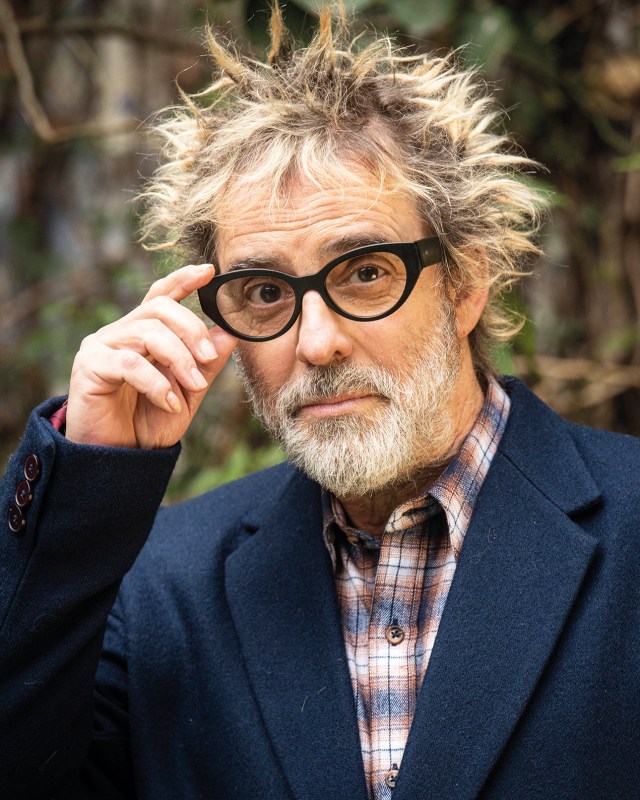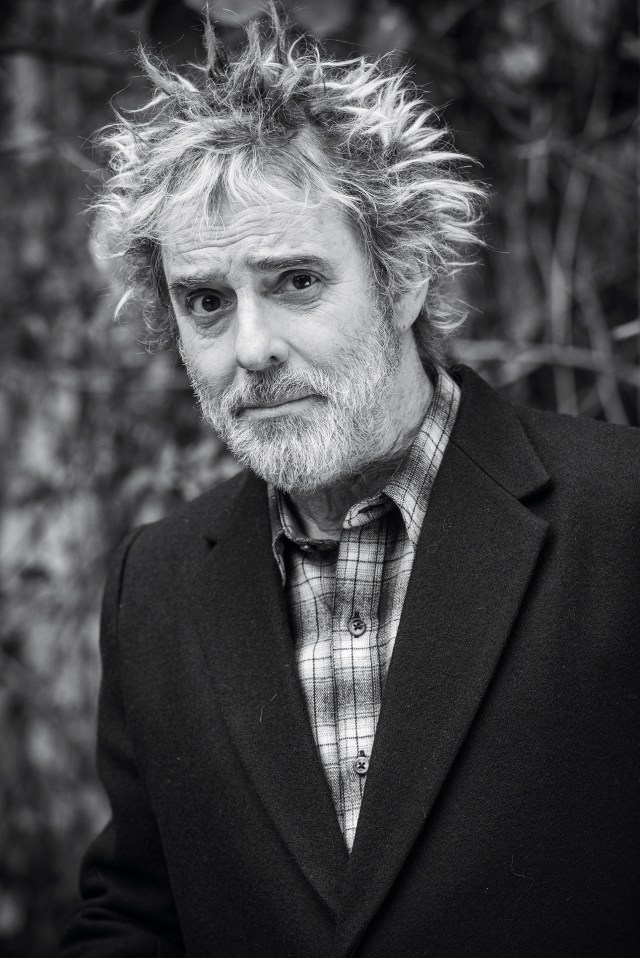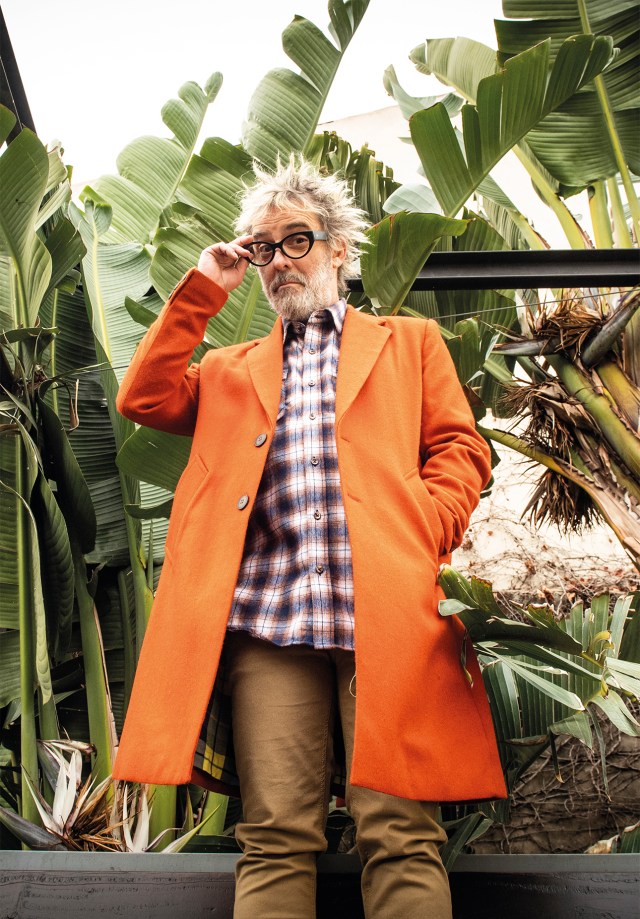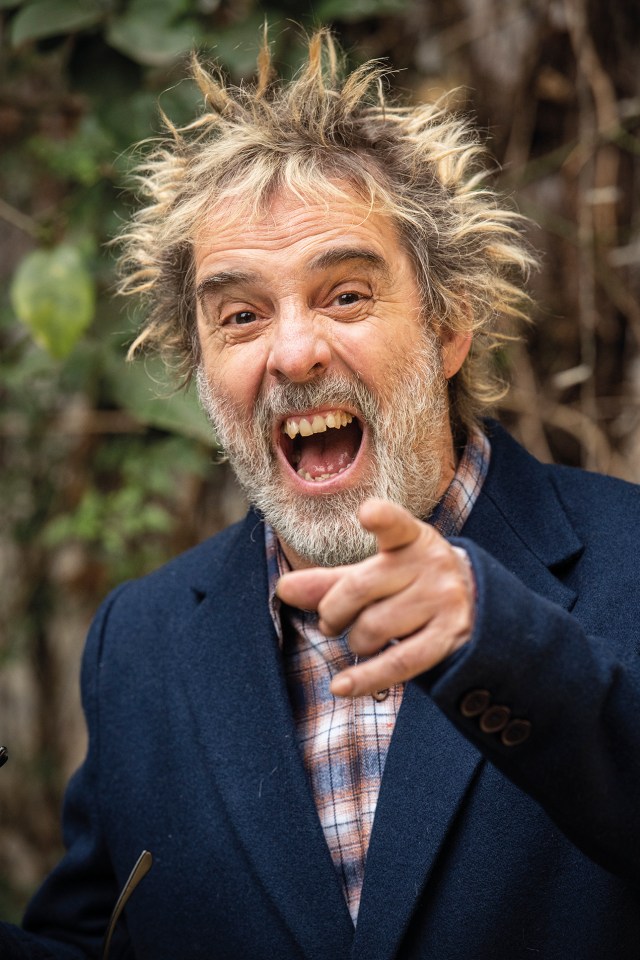Mex Urtizberea receives to The Urban Planet at home, his place in the world, where he currently does almost all his activities: his radio show The morning (Monday to Friday, from 9 to 12, by Nacional Rock) and Fa!a kind of cultural gathering in which, once a month, they have the pleasure of chatting with artists and playing with the best musicians, from Ruben Rada to Palito Ortega.
“I normally hold meetings, only now it occurred to me that this is beginning to be seen,” he says about the cycle that he produces and directs together with Fabiana Segovia, Nicolás Tolcachier and Pedro Saborido, and that can be seen on the YouTube channels of Relatorxs and Public TV. “I was brought up like this. My parents always opened the doors of the house and everyone came, I loved it. Imagine that my old man was a theater critic, the casts came and a stage was set up, ”he recalls.
How does it feel to work from home?
I’m kind of phobic with the outside world. It’s hard for me to go out, I’m home, and the pandemic accentuated it. It also led me to think about how to do things differently. Everything has grown a lot technologically, now we do interviews at home that we stream and we can make music that sounds like a record. I am very attracted to the new language because it gives humanity.
–How was it created? Fa!?
–It all started because last year we did a Diego Maradona special that came out great. We saw that people needed to get together, so we decided to do one a month, always based on an anniversary or some event that has happened.. The first one was about the 40th anniversary of Malvinas, then we talked about revolutions for May 25th and in July we talked about friendship. We talk about topics that are common to all, we look for the musicians and we make songs that have to do with the program. With Nico Tolcachier and Hernán Segret, the musical director, we thought about who could reverse certain songs.
–How is the reaction of the artists when they receive these proposals?
–They all respond happily. It surprises me, because it is not much that I propose in exchange. It’s just coming to have a good time. People are cool with me, that’s the most beautiful thing, because you feel that there is respect. I am 61 years old and those things excite me: I think it has to do with the passage of time, with being in a place for a long time. Lately, I have been telling myself that I am very happy with my work.
-In Fa! you give yourself the pleasure of playing with top-class musicians. Do you plan to resume your musical career?
–I am recording things with Pato Smink, who is the DJ who did all the music on the program and is very talented. He brings me the bases, we put together some grooves and I put melodies and lyrics on them. We are putting together songs and at some point we are going to give them form, but I am not with any project other than playing with the guests of Fa! I have the drums set up here at home along with the piano and bass equipment. When my son-in-law Juan Ingaramo comes with his friends Julián Kartun and Mateo Sujatovich Everything catches fire and I’m there. There always has to be a reason to sit at the piano, like learning the songs I have to do for the show. I haven’t picked up the drums for a long time and recently I did it with Francisca Valenzuela. I’m lovin ‘it. The one that is saved is the sax, which I played for a long time. We had an instrumental group with Gillespi called La Sonora del Plata, with which we recorded two albums that came out through Melopea, Litto Nebbia’s label. He got into my head that it was a band with two winds and I began to study it, but it doesn’t attract me that much.
“People are cool with me, that is the most beautiful thing, because you feel that there is respect. I am 61 years old and those things excite me: I think it has to do with the passage of time, with being in a place for a long time.”
–When you look back on everything you did, what conclusion do you come to?
–One’s job is to go, not to arrive. I never started acting, my thing was music. My brother was the actor in the family. I found myself at the Parakultural, I met Alfredo Casero, he took me to the TV and whoever saw me there took notice and hired me, I didn’t look for him. I wasn’t thinking of doing it, also, because my old man would come home insulting the television, and at that moment I thought: “If there’s something I’m not going to dedicate myself to, it’s this.” I am quite self-taught and I began to learn. I was dazzled to meet Fabio Alberti and Diego Capusotto. I always had a relationship with humor, but I learned to act with them. I get into everything that is new to me, like making a character like Tuca in graduates. She had never thought of doing those things.

– What was your biggest challenge?
–Make Wilson in The 13 wives of Wilson Fernández, who was a serious and dense character. He cost me, but it came out divine. We made a great duo with Alberto Ajaka. Now Gastón Portal wants to make the film and that excites me. Violeta, my daughter, helps me a lot and advises me. She is very smart and wise. I feel complete trust and respect for her. When you have a child, what worries you the most is that that person is happy, he is saved in life and has the tools he needs. And if he also teaches you, that’s a bonus. It is wonderful.
–Your father, Raúl Urtizberea, was a well-known journalist, and your brother Gonzalo, a prestigious actor. When you started working on television, do you think Violeta lived the same as you, that you lived with two famous people?
–She is the third generation of that, she grew up with people who had a relationship with television. I lived by giving music classes for thirteen years until she appeared on television. Her mother, Gabriela Ferreyra, is also an actress, and Violeta started acting when she was very young, so what happens to her is very normal. At one time her stepfather was Fernán Mirás, who was the first to make him do scenes of her, when he was barely 7 years old.
“I am a captain where I am, and I consider that a plate of food, being in a pleasant place, escaping from the hostile world of the office, all of this improves relationships. I always think in a group, that everyone excels.”
How do you feel in your current role as an interviewer?
–At one point I had a radio program at midnight and my dad was my columnist. It was very weird and I always felt uncomfortable. He was a great journalist and he deserved to be out there driving. I’m not, but I’m curious. I try to get along with the interviewee, not to attack him from the start and see how he loosens up, leading him to talk naturally about what interests me instead of asking him. I don’t know if that’s journalism or what, it’s more than anything to think that what you’re doing turns out well and shines. I try to bring out the best in people. In Magazine For Fai We made the boys improvise characters that they invented at the time and I later wrote a script based on what they had created. I still apply that concept to everything I do.. Pure chemistry It is another example in which everyone entered the game, each one had a clear role and the complicity of a fiction was generated. I am a captain where I am, and I consider that a plate of food, being in a pleasant place, escaping from the hostile world of the office, all of this helps, brings together and improves relationships. I like to think of something and do it, that it works and that everything is sparkling. I always think in a group, that everyone excels.

–Do you think that your musical training gave you this ability to work in a group and make everything work together as a band?
–In my adolescence, Lito Vitale was my drum teacher. Later I met his father, Donvi, with whom I learned to play the piano, to compose and to improvise, although he didn’t play a single note. After my military service I joined MIA, the Vitale group. I was there until they broke up, in ’82. He played the tenor sax and the piano and sang in the choir. I also had a duet with Verónica Condomí, with whom I composed songs that I never recorded. The MIAs were the creators of independent production. We sold the records in advance and with that money we produced it and then sent it to those who had bought it through a distributor. I learned from them and from Los Redondos, who also recorded in their studio.
-Later you applied self-management in other areas.
–On TV, in everything, I love that. Lito’s father also taught me to work in a group, to make sure that everything works and to manage it. Managing is freedom, although it is also very distressing, like when there are times when you don’t sleep or spend years without work. I spent many years without working for not being able to do what I wanted. Life is an adventure in which you have to make decisions, a jumanji in which different doors and places are opening (Serie).

CREDITS
Photos: Agustin Dusserre
General coordination: Gimena Bugallo
Styling: Camila Mariani
Make up and hair: @daichumakeup
Audiovisual producer: Chanas Scigliotti
Acknowledgments: @boliviaonline

